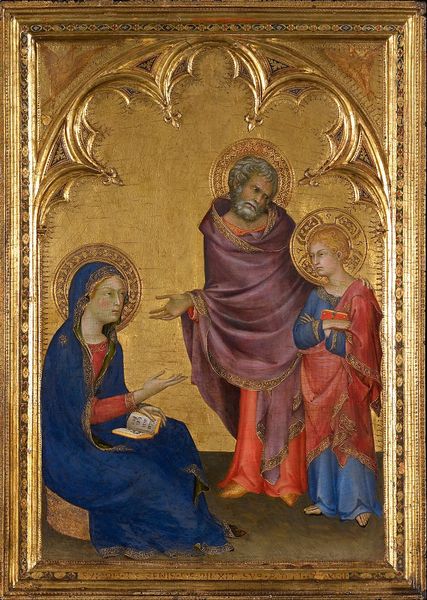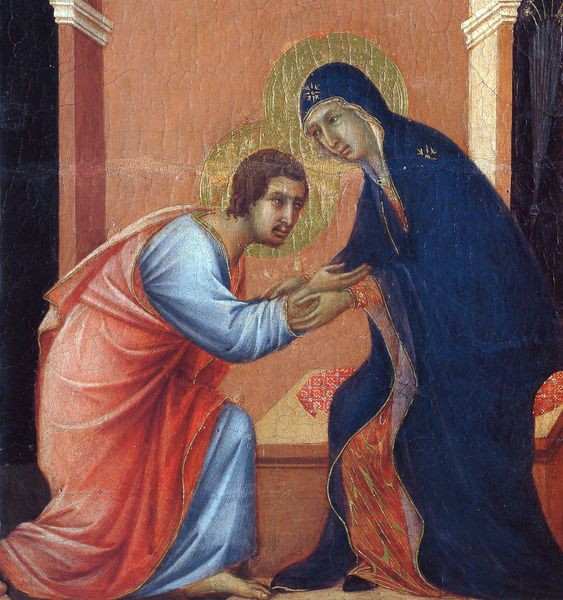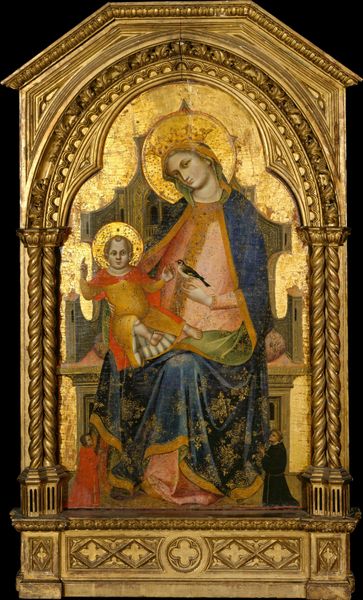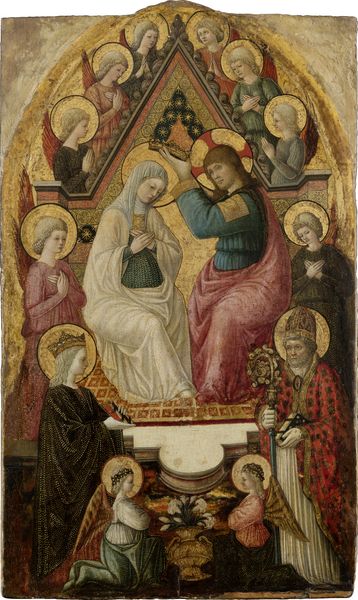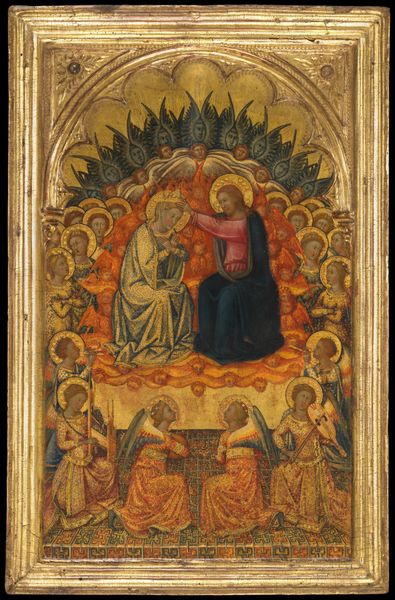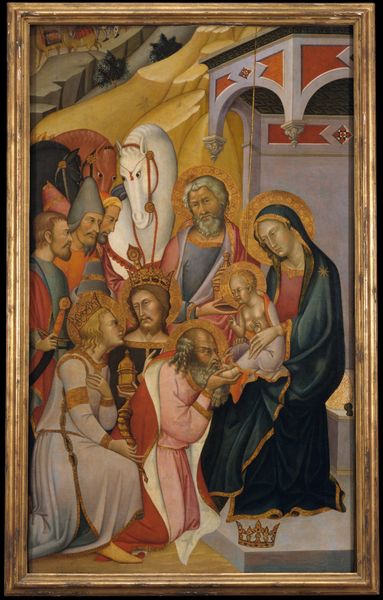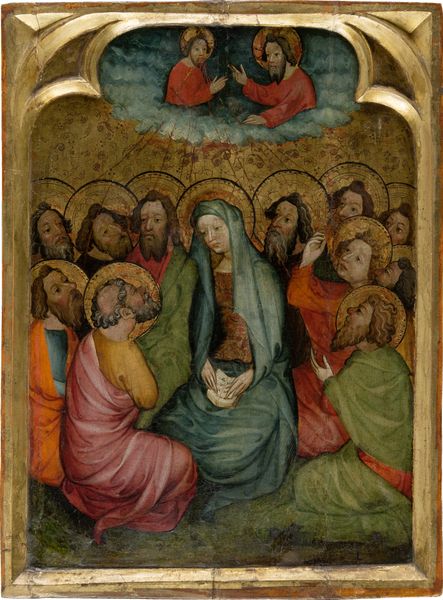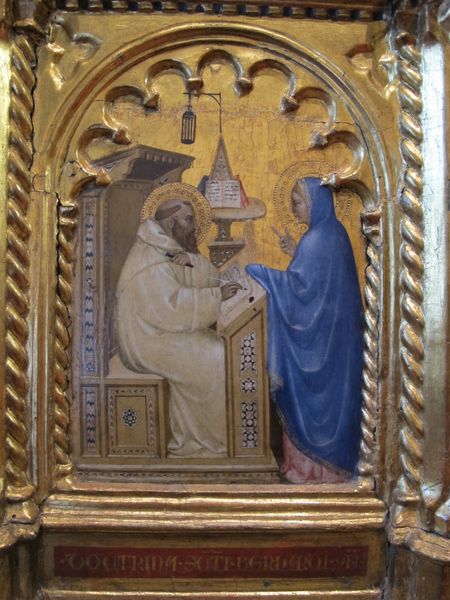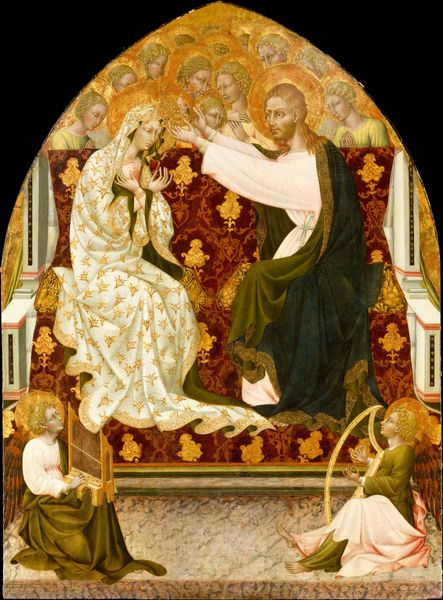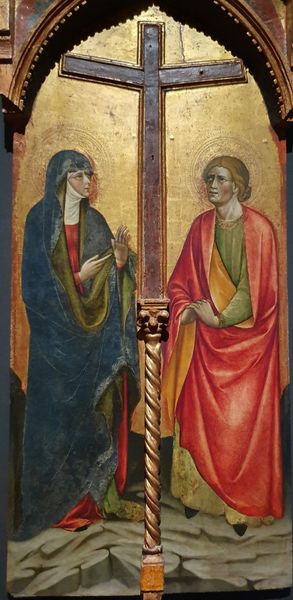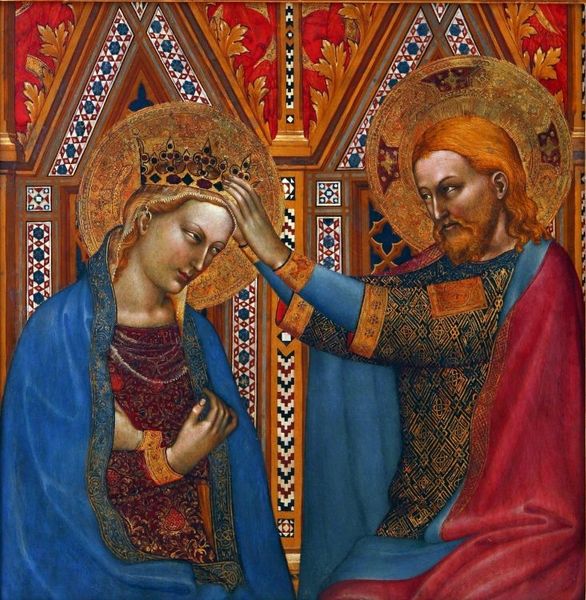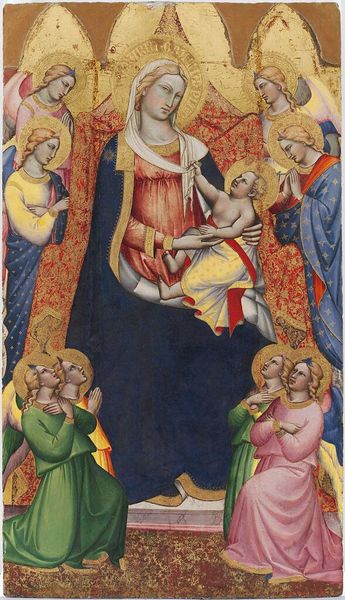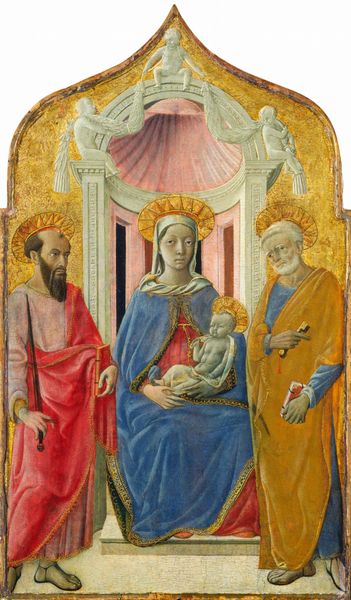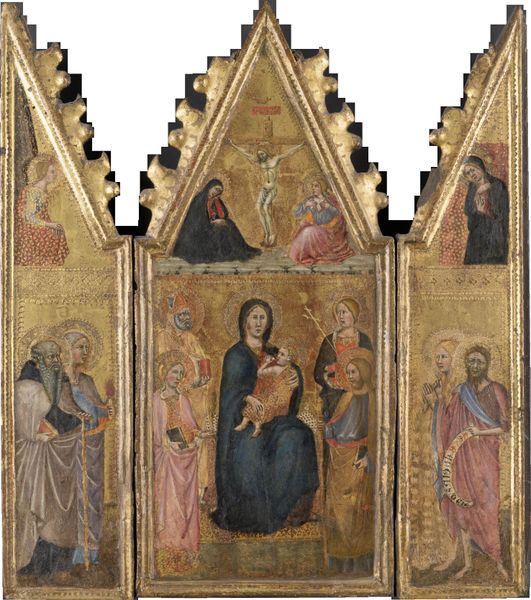
The Coronation of the Virgin with Five Music-Making Angels 1408
0:00
0:00
tempera, painting
#
tempera
#
painting
#
figuration
#
oil painting
#
watercolour illustration
#
history-painting
#
italian-renaissance
#
early-renaissance
Dimensions: 60 1/8 x 27 x 1 15/16 in. (152.72 x 68.58 x 4.92 cm) (panel)61 3/4 x 33 in. (156.85 x 83.82 cm) (outer frame)
Copyright: Public Domain
Curator: Looking at "The Coronation of the Virgin with Five Music-Making Angels" by Mariotto di Nardo from 1408… it's in tempera. Editor: It’s quite striking! The figures feel so serene, almost otherworldly, but there's such groundedness with those earthly angels. I'm curious, what draws your eye when you look at this piece? Curator: The materiality immediately speaks to me. Think about the production of tempera paint in 1408 Florence. Each pigment was carefully sourced and ground, often by workshop apprentices. The gold leaf isn't just decorative; it represents a huge amount of skilled labour. What was the role of gilding in Florence at that time, for example? Editor: Hmm, gilding as labor. It emphasizes that even religious icons were made with very material hands? Curator: Precisely. And notice how the punchwork on the gold adds another layer of texture. This wasn’t just slapping gold onto the surface. It was about a specific method that signifies time and control by skilled labourers, and creates an intended impact reflecting status and power. This brings into question, is art defined in these contexts only as fine art, or craft too? How might social class have defined its purpose? Editor: So the materials themselves, even the techniques, tell a story about the society that produced the artwork. What would it have meant to its patron? Curator: I'd hazard to say that the patron valued this visible display of wealth and the skillful handwork because this signified an engagement in religious practice and moral conduct. But, it also showed something of great prestige was possible, even something divine, that would lead the family into favour within that community. Editor: It completely reframes how I think about paintings from this period. It's not just a beautiful image but a physical record of material value and production processes that highlight wealth and community engagement. I never thought of art from this angle before! Curator: Absolutely. By analyzing its material origins, the economic exchanges behind it, and what this communicated about a commissioner's status, we challenge preconceived notions and create new avenues for understanding artworks, that include process, consumption, labor and even exploitation.
